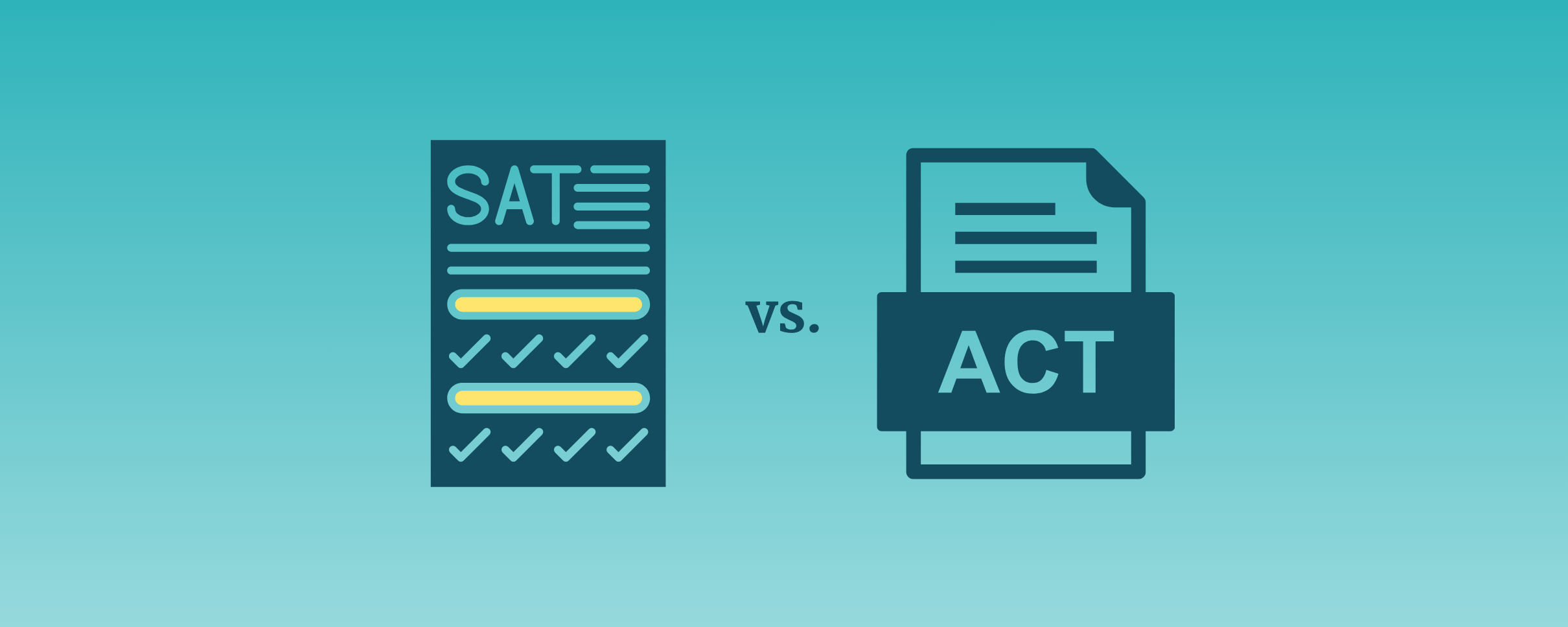As you may already know, a shorter, revamped ACT is coming in 2025! Here, we recap many of the recent announcements and offer our recommendations for students looking to take the ACT in the upcoming years ahead.
The first digital administration that will reflect the changes will occur on the April 5, 2025 National testing date. Paper-and-pencil tests will still feature the old format at this point. Starting in September 2025, however, both the paper-and-pencil and digital versions of the test will reflect the newer timing, format, and composite scoring conventions of what the ACT organization is billing as their “Enhanced ACT.”
We’ve been closely following these developments both from official ACT announcements, as well as from our own conversations with ACT employees. Here is a detailed recap of the most notable changes coming:
The Science section will become optional, but overall content and format will remain strongly aligned with the previous test. The new test will also continue to be scored on a 1-36 scale, and scores are considered to be vertically aligned with the old test (i.e. if you take the newer test, your composite score should be the same or very close to what you would have scored on the older version of the test, provided you took the tests on the same day). The ACT test redesign comes a year after the redesign of the SAT and is likely inspired by this move to keep the ACT competitive in the standardized test space. However, the enhanced ACT will not be adaptive. Since the newer version of the test will no longer require the Science section, the test is indeed significantly shorter. However, the promise of a shorter test experience is somewhat misleading. In fact, when we only compare the first three sections of the test, the enhanced ACT is just 15 minutes shorter, and if you do decide to take the optional Science section, the full test is now only 10 minutes shorter. Despite this, the newer test contains significantly fewer questions, all detailed in the table below.

If you’re curious how the optional Science section will compare, the newer version will contain 40 questions to complete in 40 minutes, compared to the current version which tests the same number of questions in 35 minutes. Gone are the days of the 5th (experimental) section as well, but it remains unclear if the test writers intend to include experimental questions within the three core sections themselves.
How does this affect the overall testing experience?
Students certainly have more time per question in the three sections (approximately 17% more time per question in English, 11% more time per question for Math, and 27% more time per question in Reading), which can make the notoriously challenging pacing of the ACT more tolerable, but do not jump to the conclusion that the enhanced test is any easier. This cannot be the case, as the ACT does not plan to update their concordance tables. This means that the test will be just as difficult, and will require the same level of skill to attain a particular Composite score as would have been required for the older iteration. How is this possible you may (rightfully) ask? We don’t know for sure until we see the first set of score results come back, but we suspect that the average level of difficulty may increase to compensate for this laxer pacing.
Other than the new timing and question count, the format of the test is still largely the same. The biggest change will occur in the English section, where the passages will be significantly shorter, so that they can fit on one page or on one side of a monitor screen. This change will limit the need for unnecessary and distracting scrolling. Additionally, the English section will feature stem questions (e.g. “which choice is least redundant in context?”), so that students don’t need to continually refer to instructions at the beginning of the section. Most notably for the Math section, questions will now come with four answer choices instead of five, a subtle change, but one that will further align the new test with the SAT.
Can I bring my own device if I take the test digitally?
The answer here is yes, but for now, only Windows devices and Chromebooks are supported. Unfortunately, Ipads and other Apple devices are not yet supported for the digital administration. The ACT promises that this will change soon, although the exact timing has not yet been specified. The key here is that the device used needs to support the ACT Gateway application. For more specifics on minimum requirements your device must meet, you can check ACT’s Test Resources page.
How will the Composite Score be calculated?
If you take the digital version of the test from April through the summer, the Composite score will be calculated by computing the average of your English, Math, and Reading scores, rounded to the nearest whole number. The Science section will no longer affect the composite score, even if you choose to take it as an optional test (you will still receive a separate stand-alone score for this area). If you opt to take the paper version of the test however during this same period, the Science score will still be averaged into the overall Composite score. Starting with the September 2025 test, both digital and paper administrations will be scored by averaging only the English, Math, and Reading scores.
How will superscoring be affected?
Many of you may be familiar with superscoring, a college-admissions policy of averaging only your highest ACT section scores across all administrations of the test to obtain a composite superscore. Not all colleges have this policy, but the majority have honored it in the past. If you only take the current version of the test, your highest Science score will be considered when computing this score, but if you decide to take the enhanced ACT at least one time, your superscore will no longer include a Science score.
Which version of the test should I take?
At Applerouth, we are a little cautious in our recommendation for ACT testing in 2025, but for good reason. For the April and summer administrations, we actually recommend you stick with the current (non-enhanced) version of the test until September, when the enhanced test will become standard across both the paper and digital versions. Unfortunately, the early digital administration will have very limited seating. The ACT has also had its share of technical issues with digital administrations in the past, which could lead to a very frustrating testing experience. This is especially likely given that the newest digital administration will require uninterrupted internet connectivity throughout the entire test (unlike the SAT, which only requires internet connectivity at a few specific points during the test). Because of this, students might deal with lag issues if their questions load slowly, which may cut into their time allotted, possibly cancelling out that pacing benefit that the new test promises. On top of all of these considerations, the ACT still cannot support certain devices (most notably Apple products), signalling some possible unreadiness for the earliest digital administrations.
While the ACT works out the kinks of the new, enhanced test, we strongly recommend that students continue with the older paper-and-pencil version of the test. It really isn’t much different, and if the Science section is a weakness for you, consider taking the test in September as well, so that you can potentially drop this score from your superscore.
The ACT is expected to release their first practice test featuring the new format in January 2025. More practice tests may be slow to follow, but the ACT states that the older practice tests in their official prep guide are still very much relevant and excellent sources of material for ACT practice. In the meantime, Applerouth's Curriculum team is working hard in the background to produce the best and most accurate practice tests on the market! We have also started revamping our coursebooks so that they align with all of the upcoming enhancements. Rest assured that in this changing testing landscape, Applerouth will always have you prepared!
To create a customized testing plan for your student, book a call with one of our friendly Program Directors or call us at 866-789-PREP (7737).





.webp)



